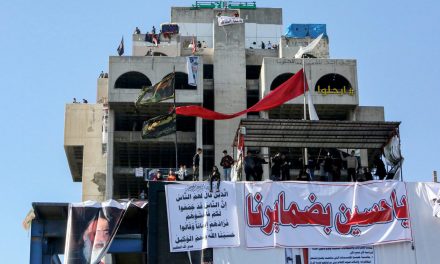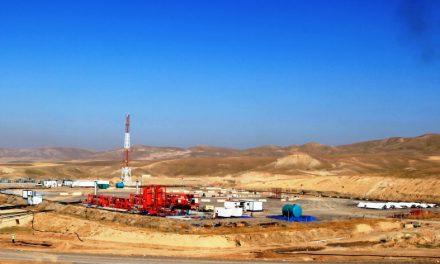The COVID-19 pandemic led to the collapse of global oil prices which hit Iraq’s economy hard as 90% of the country’s budget is dependent on oil revenues. Iraq’s new Prime Minister Mustafa Al-Kadhimi is required to lead the country out of its financial crisis, and there are a few difficult options available for him to choose from. One of the options being discussed by analysts and subject matter experts is the devaluation of the Iraqi Dinar (IQD). Devaluating entails decreasing the official exchange rate of the Dinar in return of a foreign currency, in this case American Dollars (USD), which means that one would get less Dollars in exchange from Dinars.
In fact, there was political pressure from the previous Minister of Finance Fuad Hussein and the Parliamentary Financial Committee to decrease the IQD value to have less debt in USD and justify overspending in the proposed 2020 federal budget. A report authored by the Governor of Central Bank of Iraq Ali Al-Allaq, published back in March 2020 argued why this option should not be pursued, at least not in the near future with Iraq’s current situation.
According to the report, Iraq’s foreign reserves are estimated to be around $65 billion USD or more than 30% of Iraq’s GDP. The adjusted current account achieved a surplus by 5.75% from Iraq’s GDP in 2019, and this surplus is expected to remain at similar levels throughout 2020. Normally, when these reserves are low, countries refrain from devaluation which in Iraq’s case is not required for that specific reason.
Countries would also pursue this option to improve their trade balance which means increased export and reduced imports. While that would be a reasonable goal to pursue, the government is more interested in covering its budget deficit due to increased unproductive spending. According to the report, industry and agriculture only make up 5% the GDP and does not contribute much to exports. Iraq is not able to impose an effective tariff system unless it introduces automation and e-governance measures, as part of a comprehensive strategy to impose a coherent import policy. Unless this happens, devaluation to improve the trade balance does not make sense for Iraq.
The government’s biggest motive to pursue the option of devaluation is to be able to pay the salaries of over 6 million people including civil servants, pensioners, and those eligible for social assistance. The report points out that devaluation leads to higher inflationary pressures which will reduce the citizens’ purchasing power. The reason is that most Iraqis depend on the state for their income. On the other hand, Iraq also has a deficit in the ‘availability of local products’, meaning that the most basic products are imported, as Iraq does not have the capacity to produce these. Devaluation would make imported products more expensive given that these are usually bought using foreign currency. This could theoretically mean giving local products a chance in Iraq’s markets. However, given that Iraq’s local industries are weak, this would only mean increased prices in the case of a devaluated local currency. In other words, devaluing the currency operates like a tax which can only be undone through increasing salaries. This in return would undo the gains in currency devaluation and defeat its purpose altogether.
According to the CBI report, Iraq is unable to pursue a strong economic policy that is required in devaluation, given its weak political, economic, and financial tools. Even if devaluation is pursued it does not contribute much to closing the deficit. On the other hand, a stable exchange policy helps in stabilizing the economy and encourages foreign investment.
CBI’s report restates the obvious that what Iraq needs are deep structural changes in Iraq’s economy that require years to take place, most importantly boosting its private sector and reforming its financial infrastructure. The report also stresses that pursuing short-term solutions like devaluation of currency are not only less effective, but they put the country in danger of further financial distress in the middle and long-term.
Therefore, one of the most effective strategies to create economic stability is to increase productivity, whether in terms of the availability of local products, or the services provided in local markets. As the CBI report points out, this requires structural change that takes time, which Iraq does not have much of.
Regardless of the alternatives, Iraq must figure out how to resolve the current economic crisis now. It simply cannot manage the crisis till the next government takes over. While pressures to overspend remain, the looming danger of devaluation to Iraq’s economy is greater and so it is essential that Iraq’s economy refocuses on production. This would translate into providing jobs for Iraq’s majority young population, which would lead to much needed political, economic, and social stability, and allow devaluation, if needed, to have some tangible benefits.











